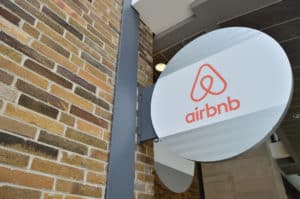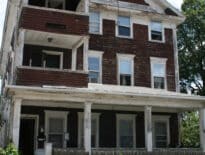Almost a year after Massachusetts passed a law taxing and regulating short-term vacation rentals, the state’s revenue commissioner said Wednesday that the new tax is “settling in pretty well” after education and outreach efforts.
Under the law Gov. Charlie Baker signed on Dec. 28, 2018, short-term rentals, including those listed on platforms like Airbnb, became subject to the state’s 5.7 percent lodging tax, plus additional taxes in certain communities.
Supporters of taxing short-term rentals said it would put that type of lodging on equal footing with taxed hotel rooms. For consumers though, the tax can translate to additional costs.
On Airbnb, a two-night stay in a Beacon Hill studio that rents at $100 a night carries with it $45 in taxes, and the same time spent renting a four-bedroom, $308-a-night cabin in Lee incurs a tax of $102.
As state budget writers begin crafting next year’s spending plan, Revenue Commissioner Christopher Harding told them that short-term rental tax collections so far have been roughly consistent with estimates.
Harding’s revenue projections assumed the state will collect $27.5 million this fiscal year and $30 million in fiscal 2021 from the short-term rental tax.
“It’s a new tax type, a lot of questions and clarification, so we’ve spent an awful lot of time on that,” Harding told Ways and Means Committee members and Administration and Finance Secretary Michael Heffernan at an annual hearing where experts provide their revenue estimates for the year to come.
“I don’t want to get ahead of myself but I think we’re settling in pretty well as we get ready to exit the year here,” Harding said. He said, “We’re actually tracking nicely right now on our revenue projections there.”
The law required short-term rental hosts to register with the Department of Revenue, and exempted hosts who rent their property for 14 days or less from collecting taxes. The tax also does not apply to properties rented for less than $15 per day.
In addition to the 5.7 percent room occupancy tax, short-term rentals can also be subject to a local option excise tax and community impact fee, depending on the municipality where they’re located. In Boston, Worcester, Cambridge, Springfield, West Springfield and Chicopee, a 2.75 percent convention center finance fee also applies, and in municipalities that are members of the Cape Cod and Island Water Protection Fund, there is another 2.75 percent excise.
The two lawmakers who led negotiations on the short-term rental legislation, Rep. Aaron Michlewitz and Sen. Michael Rodrigues, now chair the budget-writing Ways and Means Committee.
Michlewitz, a Boston Democrat, asked Harding during the hearing what his short-term rental revenue projections looked like.
Baker signed the law on a Friday last year, and the next business day was New Year’s Eve. Returning after the New Year’s Day holiday, Harding said the revenue department’s “phones were blowing up” with questions from realtors, people on the Cape and islands, and others.
“I’ll characterize the last year as a lot of education and collaboration, a tremendous amount of effort that went into that,” he said.
Harding said about 300 intermediaries – companies like Airbnb and Expedia – have registered to date, and more than 5,000 operators.
The tax took effect on July 1, with the start of the fiscal year.




 |
| 




